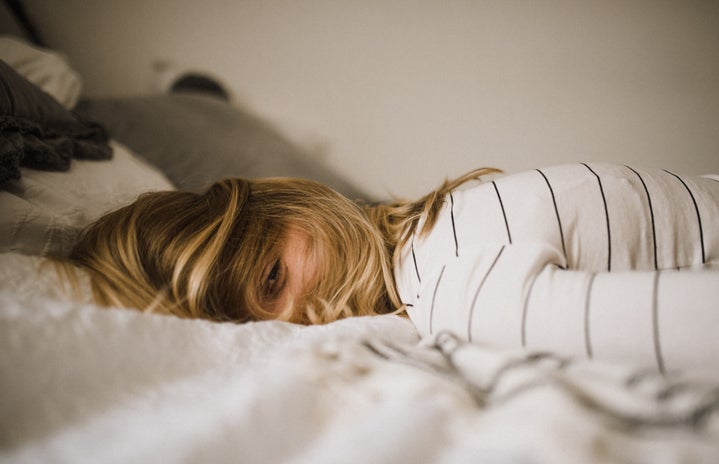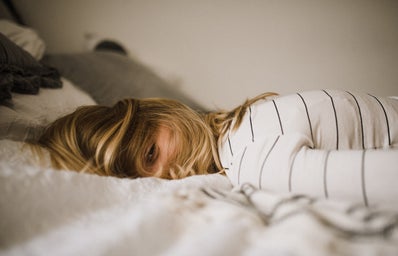For many of us, just as our heads hit the pillow, our minds begin to race. This can then lead to a lack of concentration and poor work performance the next day due to the hours of sleep we lost. Getting a good night’s rest is an essential part of feeling physically and mentally well. Luckily, if you implement the right habits into your daily day/nighttime routine, you will find it much easier to unwind and get some shut-eye.
- Sip Something Warm
-
It is common knowledge that caffeine will give you energy, so it is wise not to drink any caffeinated drinks after 2 PM. Alcoholic drinks might make you fall asleep easier, but your sleep will be a lot more restless than without it. Later in the day or before bed, try drinking something warm and decaffeinated. One of my personal favorites is decaf Earl Grey tea with vanilla syrup and almond milk, also known as a London Fog. If you are going for something more simple try a warm glass of milk or Yogi Bedtime tea.
- Use Your Bed Strictly for Sleep
-
The only reasons you should be in your bed are intimacy and sleep. You might see your bed as a place for sleep, lounging, eating, and doing homework but unfortunately, this needs to stop. Research concludes that “your body and mind should recognize your bedroom as a place of rest and intimacy”, says Dr. Michael T. Murray. By strictly associating your bed as an atmosphere of rest and relaxation, your body and mind will find it easier for their troubles at the door.
- Avoid Technology
-
While it may be tempting to scroll for hours on your phone before bed or keep your eyes glued to your favorite Netflix binge on your laptop, taking your eyes away from the screen 30 minutes to an hour before bedtime shows to benefit your sleep cycle. Between hours spent on Zoom all day and browsing through social media and/or TV shows, screen time adds up at the end of the day. In fact, “artificial light exposure between dusk and the time we go to bed suppresses the release of the sleep-promoting hormone melatonin, enhances alertness and shifts circadian rhythms to a later hour – making it more difficult to fall asleep,” says Dr. Charles Czeisler, in a National Sleep Foundation press release. Your last hour of activity should be spent away from the screen doing something relaxing like taking a bath or reading.
- Stretch It Out
-
There is nothing more relaxing than stretching the stress from the day away. Doing static stretches before bed has been proven to help relax your muscles as well as your mind. By focusing on slow and purposeful movements, it gives you the opportunity to focus on your meditation and breathing. Jessica Matthews, doctor of behavior health, assistant professor of Kinesiology at Point Loma Nazarene University in San Diego, and author of Stretching to Stay Young says, “with static stretching, your muscle is stretched to the point of mild tension or discomfort, and then held without movement for an extend period of time, usually about 30 seconds (or longer if it feels good)”. For some recommended stretches click here.


